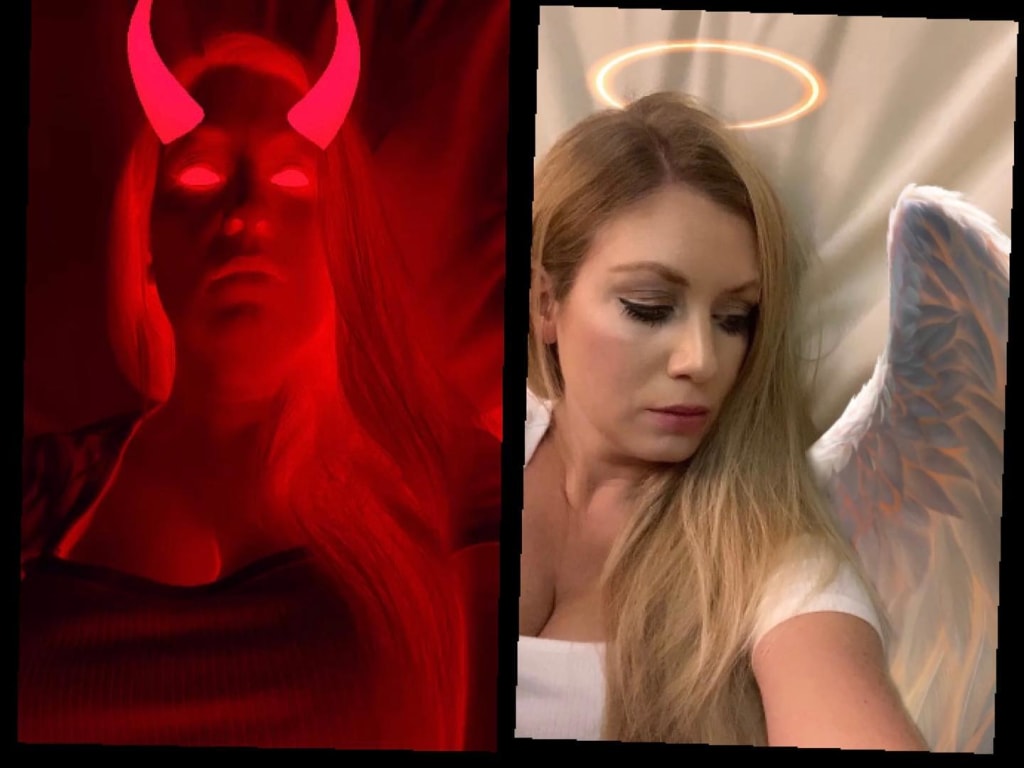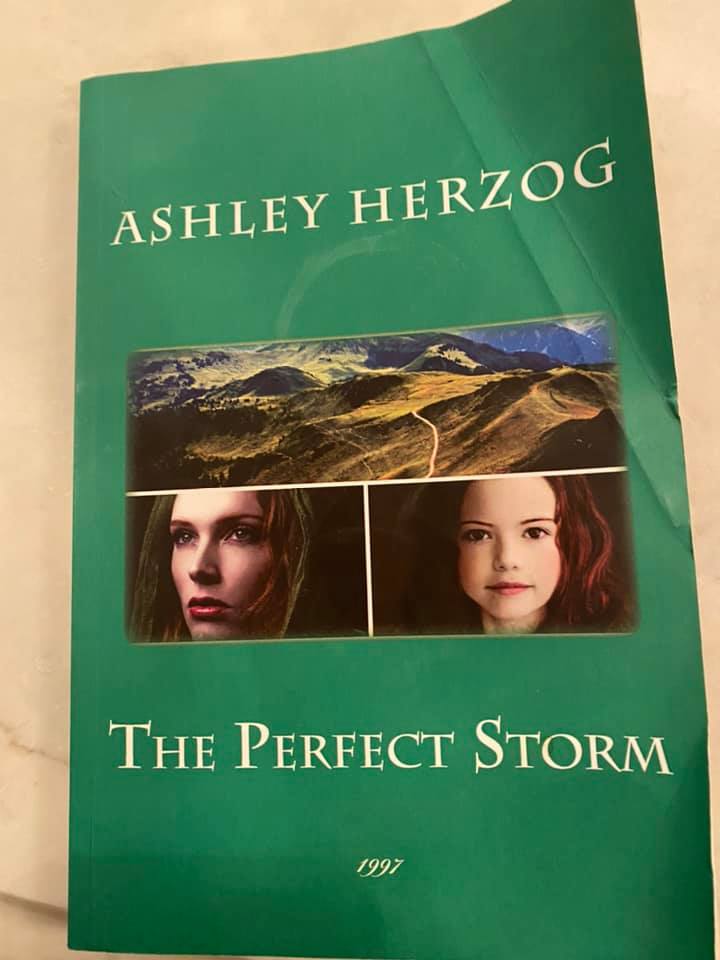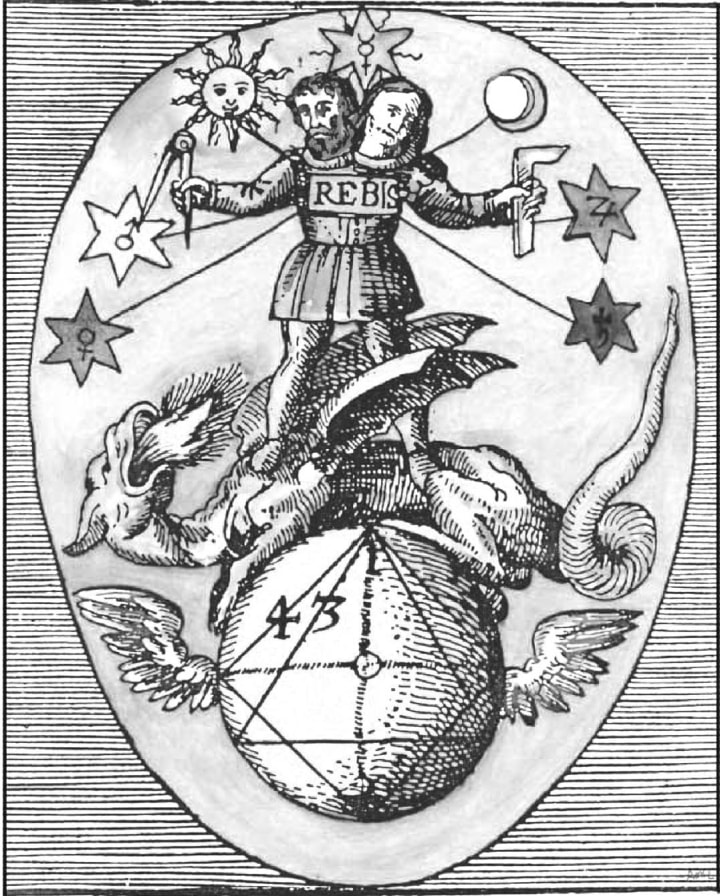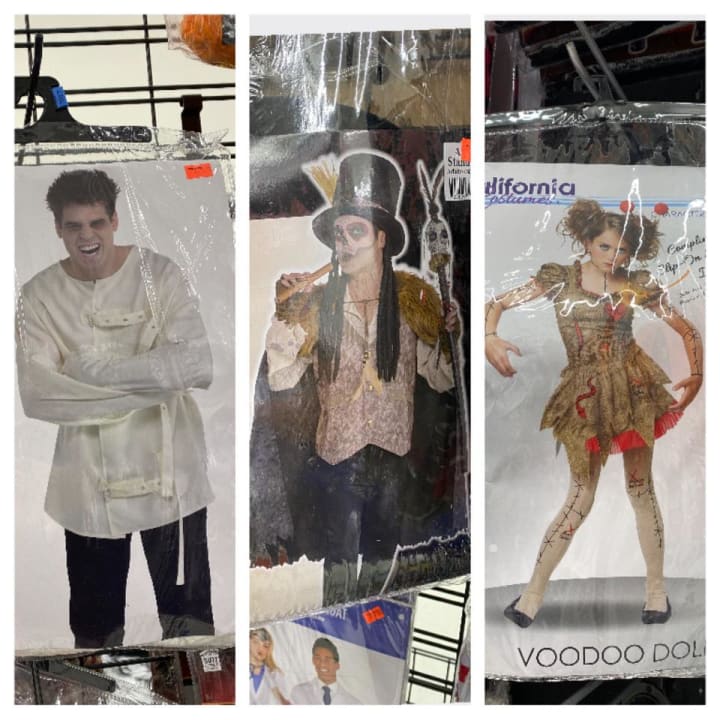I don't date guys who love horror movies
The horror genre is full of misogyny and senseless, relentless gore. This week, I'm writing it anyway.

When I was 11 years old, I wrote a horror novel. At nearly 70,000 words long, it's the longest work I've ever created, slightly longer than the novel I wrote about my Irish ancestors when I was well into my 30s. I wrote it in one month, between September and October, finishing two weeks shy of my 12th birthday. I typed it all on a CD-ROM program for kids, writing up to 5,000 words a day between school and volleyball practice. The story was a murder mystery set in rural Western Ireland, where all my maternal ancestors came from.

No, it's not for sale. I printed this version just for me, because for years, my story only existed as a computer file and a stack of looseleaf paper printed from my dad's home office. I will note with pride that my story was, as the kids these days say, "Feminist as F*CK." It starts with a young, pregnant woman named Eva stabbing a community leader--who leads a double life as a crusty old sexual predator--in self-defense. She knows it was self-defense. But her treatment at the hands of the police, the Catholic Church, and the court makes her doubt her own story, wondering if she remembers it all correctly. She also faces judgment from her own community. The place is insular, gossipy, and home to a lot of backward, ignorant Irish peasants, who simultaneously wonder if the pregnancy hormones have driven her mad and "what kind of mother" would pick up a knife in self-defense. While some community members are working themselves into a self-righteous lather, the main character's friends--two young men and a woman, all barely in their 20s--conduct their own investigation. At every turn, they find that sh*t just don't add up. Shortly after the birth of her newborn daughter, Margaret or "Peggy," Eva is convicted, but unveils a key piece of evidence that frees her at the last moment.
Is it New York Times bestseller material? No; it's obvious that a child wrote it, and one young enough that she wasn't entirely sure where babies came from. But that's the thing: considering a preteen wrote it, it's a great novel. (It also bolsters my theory that we're all born a little bit psychic. Although I didn't get all the details right, I found out something very similar might have happened to my female ancestor who lived among the Claddagh people of Galway in Western Ireland. And she really did have a baby named Margaret, called "Peigin" in Gaelic, or Peggy.)
I was proud of my novel. But it was also my stumbling block. Many women writers have one. Male authors, even the youngest one, get tripped up by overconfidence: any editor will tell you that they constantly field queries from young, exuberant men whose manuscripts are a big old mess. They don't take criticism well. Many women don't, either, but for the opposite reason: we'll let one know-it-all critic derail our writing ambitions. For me, this was the novel that caused the self-appointed critics in my life to tell me I was getting too big for my britches and needed to sit down and "do my research" before undertaking such an ambitious project. I even had a self-styled expert on Ireland criticize my (admittedly limited, since I was 11) research abilities, claiming Irish people don't wear the color red and never pursued fishing as their primary livelihood. If we're talking about the Claddaugh community, they do both. In fact, they're famous for it--proving it was his knowledge that was limited, not mine. In any event, this more than qualifies as "nitpicking." And he wasn't the only one. I brought my novel to school, where my artsier classmates and fellow nerds loved it. The teachers at my Catholic school, however, did not love it--deeming it both inappropriately sexual and inappropriately violent. Twenty-four years later, I still ask myself what the motive was for adults to smack down a preteen horror novelist.
There are many reasons, but one big reason is that misogyny is still permissible in the writing world, particularly in the horror genre. The violence against women in horror movies and novels is so gratuitous that some of dubbed the entire genre "torture porn."
American culture is often referred to as “repressed” and squeamish when it comes to the topic of sex. Sexual imagery and themes in media are seen as uncomfortable, awkward, and maybe even gross to some. This aversion to sexuality is much more potent when it comes to women seeking and receiving our own pleasure (as opposed to just acting as an object for male pleasure).
It’s the fact that this concept — female sexuality and pleasure — is so taboo that it finds itself embedded within Horror media so often. It makes people cringe to see women embrace their sexuality confidently, especially if that woman hasn’t been designed/styled to be sexually appealing to a presumed straight, male audience.
As for the old jokes about how "virgins never die" in horror: Yeah, that's part of the problem.
As the hit Horror-parody film Cabin in the Woods (2011) points out, there is a very formulaic structure to the group of teens being terrorized in any given “Slasher” Horror movie. They’re very recognizable tropes: the Nerd and/or Stoner, the Jock, the Token Racial Minority, the Nice Guy, and then of course we have the Virgin (always the “Final Girl”) and the Whore. The “Whore” is almost always a very attractive woman, usually blonde (and Caucasian), who enjoys sex and makes that no secret... [she's] among the first to be picked off (but not before the Racial Minority, of course).
Contrast this treatment with the Virgin/Final Girl, whose modest and innocent nature make her demonstrably more valuable than the Whore. She is pure and untainted, so she’s the one who deserves to survive; only by virtue of her virginity and ignorance to more “vulgar” things.
This is a grim development for a genre whose Founding Mother was Mary Shelley, the author of Frankenstein. Shelley's novel did what horror was meant to do: it made the audience confront the horror of human experimentation, using various stolen body parts from unwilling subjects to construct a monster. In 2021, most people agree that human experiments are grotesque and should be harshly punished as war crimes. However, in Shelley's day, the powers-that-be were wanking to the idea of Build-a-Human. They called it "alchemy." People misunderstand the history of alchemy. But its etymological roots reveal its original purpose: it's literally the "chemistry of humans." And that's not a good thing: the lab-created humans were meant to be exploited for their labor or their organs. Some of the truly deranged alchemists hoped to create self-reproducing hermaphrodites.

Sick. The world's first horror novel, written by a woman, helped bring alchemist fantasies down to earth. It made people realize the horror of the monster these sickos were about to create.
Horror is about identifying evil and facing it down, not reveling in it. And the horror genre in 2021 is all about reveling in it. That's why I don't date guys who watch too many slasher films. I’m pretty open minded when it comes to dating. You know how some women say “He’s gotta be at least 6’2”, make $150,000, and co-sign all my bullshit?” I don’t. But If you sit through 90 minutes of wanton violence and misogyny and file it under wanking material, I’m running for the hills.
But this year, I'm taking it back. I have three horror fiction stories coming this weekend, two of which will be entered in Vocal's "Foggy Waters" challenge. All three have a message. I hope they will make people think about, for instance, about racism and the way we stigmatize the mentally ill. Because a trip to my local Halloween store indicated the upcoming holiday is still synonymous with both.

From left, that's a psychiatric patient in a straitjacket, a "witch doctor" (complete with dreadlocks) and a Voodoo Doll. As I've written before, Voodoo dolls are not a thing, and I'm fairly certain witch doctors are not a thing either. But they're part of the racist mythology that pervades the horror genre.
But this weekend, I'm hijacking this genre and taking it back. Remember, ladies: horror writing was pioneered by a woman. This is our time to shine.
About the Creator
Ashley Herzog
If you like my work, feel free to tip your writer.







Comments
There are no comments for this story
Be the first to respond and start the conversation.